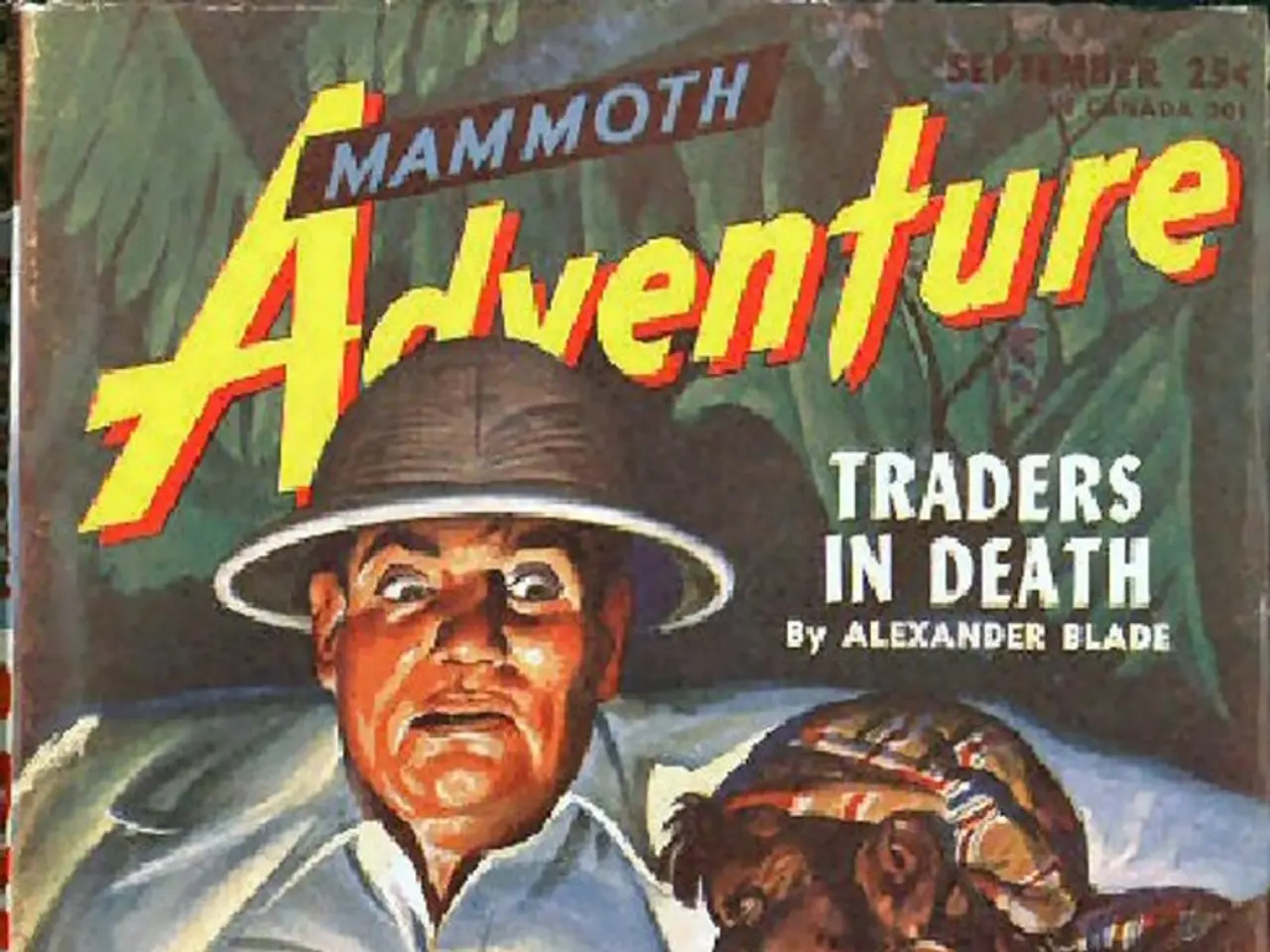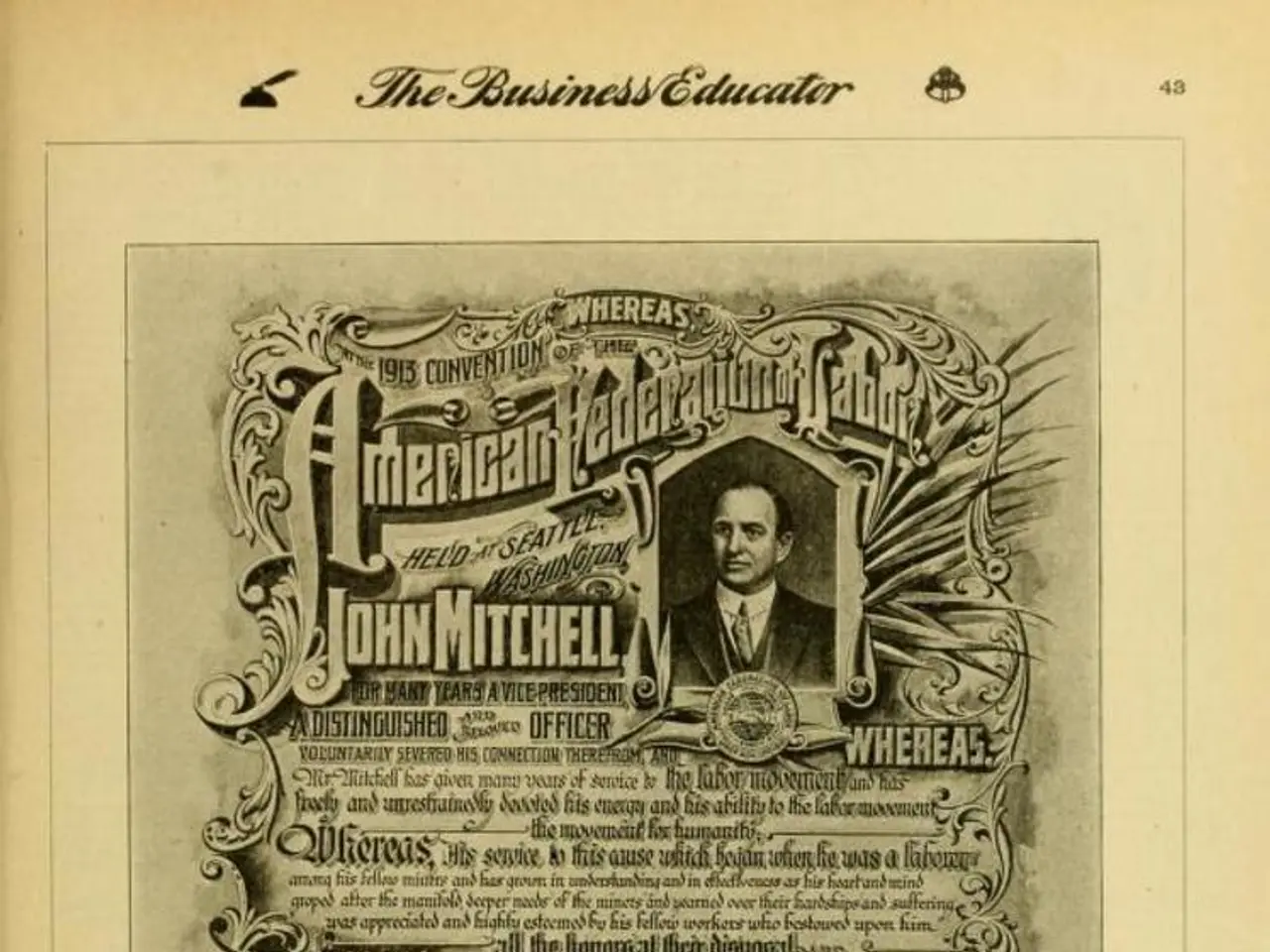Historic Black Sabbath Performance Sparked Audience Frenzy: An Exploration of the Iconic Concert
Black Sabbath: The Birth of Heavy Metal
In the heart of Birmingham, England, in 1968, the seeds of heavy metal music were sown. Four schoolmates—Tony Iommi, Bill Ward, Geezer Butler, and Ozzy Osbourne—came together to form a band that would eventually become known as Black Sabbath [1][2][3].
Originally evolving from earlier local bands called The Polka Tulk Blues Band and Earth, Black Sabbath took inspiration from their shared interest in occult themes and horror-inspired lyrics. The name "Black Sabbath" was borrowed from a 1963 horror film, reflecting their dark and ominous identity [1].
The band's early gigs were played in the vibrant Birmingham music scene of the late 1960s. They initially focused on covers, but their unique sound and stage presence quickly gained them local recognition [4].
A turning point came when they played at Henry's Blues House, a blues club started by Jim Simpson. Impressed by their performance, Simpson agreed to manage the band, who were "totally serious about it" and were willing to play anywhere [4].
The band's sound began to evolve, moving away from blues-based rock towards a heavier, more distinctive style. This transformation was marked by two significant events: the writing of "Wicked World" and a second, unnamed song that would later become "Black Sabbath" [1].
"Black Sabbath" was written in late July 1969 and premiered at The Old Pokey Hole Blues Club in Lichfield [1]. The song, with its down-tuned guitars and dark imagery, was a game-changer for the band, setting them apart from other rock bands [1].
The premiering of "Black Sabbath" marked the beginning of heavy metal music. The audience's reaction was overwhelmingly positive, causing a stir and excitement [1]. Ozzy Osbourne recalled the audience running away from the venue after hearing the song [1].
By their next gig at the Star Club in Hamburg on August 10, the band had changed their name to Black Sabbath [1]. The band's debut single "Evil Woman" was released in January 1970, and their self-titled debut album followed in February 1970 [1]. Despite initial negative critical reviews, the album was a commercial success and laid the foundation for their pioneering heavy metal sound.
This formative period defined Black Sabbath’s identity as pioneers of heavy metal with dark, ominous sounds and imagery. Their legacy continues to influence generations of musicians, making them one of the most iconic bands in rock history.
[1] - Black Sabbath: Symptom of the Universe, by Mick Wall [2] - Black Sabbath: The Classic Years, by Martin Popoff [3] - Iron Man: The Story of Black Sabbath, by Mick Wall [4] - Black Sabbath: The Dirty Secret, by Geoff Barton
- The unique sound and stage presence of Black Sabbath, a band formed by Tony Iommi, Bill Ward, Geezer Butler, and Ozzy Osbourne in Birmingham, England, eventually set them apart from other rock bands.
- The transformation of Black Sabbath's sound was marked by two significant events: the writing of "Wicked World" and "Black Sabbath," a song with down-tuned guitars and dark imagery that was a game-changer.
- The premiering of "Black Sabbath" at The Old Pokey Hole Blues Club in Lichfield was a turning point for Black Sabbath, as it marked the beginning of heavy metal music.
- The band's debut single "Evil Woman" was released in January 1970, and their self-titled debut album followed in February 1970, setting the foundation for their pioneering heavy metal sound.
- The audience's reaction to "Black Sabbath" was overwhelmingly positive, causing a stir and excitement, with Ozzy Osbourne recalling the audience running away from the venue after hearing the song.
- The band's legacy continues to influence generations of musicians, making them one of the most iconic bands in rock history.
- The bassist, Geezer Butler, contributed to Black Sabbath's dark, ominous sound with his lyrics inspired by his interest in the occult.
- The drummer, Bill Ward, and guitarist, Tony Iommi, along with the headliner, Ozzy Osbourne, and the bassist, helped shape the evolution of music in the entertainment industry with their unique sound and heavy metal style.








